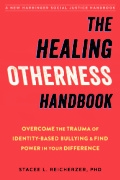If you’ve ever had a person attempt to guilt you into carrying out a course of action, you understand how coercion feels on the receiving end. How often have you attempted to coerce another person though instead of asking for what you want or stating your needs directly? You’re not alone. It’s a common method of interaction; but at what cost to the health of a relationship? To help you avoid the ill feelings that can ensue from attempted guilt trips here’s some guidance on getting what you want without using coercion in relationships.
Let’s begin by taking a look at how coercion is commonly used to elicit feelings of guilt in another person. Consider:
Scenario 1: Sandra’s mother Janet wants Sandra and her children to visit her this weekend. During a phone conversation, Janet tells Sandra, “Don’t worry about me. I’m fine sitting at home all by myself.”
Scenario 2: Terry and Kenneth work together on a team. Kenneth’s behavior in a business meeting is off-putting to Terry. She tells other people that Kenneth belittled her and that she’s feeling disrespected, expecting that it will get back to Kenneth.
In Scenario 1, we see Janet attempting to hook Sandra into bringing the grandchildren to see her through the coercion of Sandra’s guilt. While it might ultimately lead Sandra to bring the children for a visit, she’s likely to harbor some degree of mild to pretty heavy irritation toward Janet (depending on how frequently her mother uses guilt). This is because guilt never feels good. It’s also completely unnecessary to coerce guilt in this situation.
Let’s imagine instead Janet expressing her genuine desire to see the family in such a way as, “It’s been a while since we’ve seen each and I miss you and the kids. I’d love it if you could stop by.” If it hasn’t actually been a while, Janet could express her needs as, “I never can truly have enough time with you all. I’d love it if you could stop by this weekend.” Sandra may still feel guilty (particularly if she and the children hadn’t visited Janet in a while), but the important piece here is that Janet made her wishes known to Sandra without an attempt to elicit guilt. As such, Sandra will have less of the gnawing feelings of resentment that occur from coercion.
In Scenario 2, we see Terry’s effort to hook Kenneth’s guilt through the involvement of other people. Intended or not (and I submit that the vast majority of interactions are not intended to harm), Kenneth said something that led Terry to feel belittled, and Terry in turn wants Kenneth to feel guilty for what he did. She tells a bunch of people with the expectation that someone will say something to Kenneth like, “Wow, you apparently made Terry feel pretty bad in that meeting.”
There are a few things wrong with Terry’s treating the situation this way: it cultivates office gossip that could be damaging to Kenneth, it creates weird dynamics in which other people who don’t need to be involved play a role in defending either Terry or Kenneth, etc. It can also lead to Kenneth’s feelings of guilt as well as other emotions that Terry didn’t intend, in that Kenneth will very likely resent Terry’s behavior. Additionally, because of the indirect method for communication she’s chosen, Terry will be left to stew in her own misunderstanding while she’s waiting for Kenneth’s apology.
As with Scenario 1, guilt is not a necessary emotion or one that’s particularly helpful to try and manipulate here. Terry might instead say to Kenneth in private, “Hey Kenneth, in our meeting today when you said ____, I kind of felt that you were dissing my idea/cutting me off/belittling my plan. I’m guessing that’s not what you intended.”
Presenting the statement to Kenneth as such, Terry does two important things: she very clearly represents an experience she had and she states to Kenneth her assumption that it wasn’t his intent to belittle her. As a result, she is very likely to open a better dialogue with Kenneth, who might reveal that he’s struggling that day because a sick child at home had him up half the night, that a boss is breathing down his neck and it’s creating a lot of pressure, or whatever his reasons were for his meeting behavior.
Chances are that whatever reason it was, it wasn’t really about Terry and her ideas; but about some missed communication between them which they were now correcting.
Learning better methods of communication comes through practicing them. While it will feel vulnerable and therefore a bit scary to ask for or state what you need directly, it’s a significant enhancement to relationships. Other people will understand you and your needs more clearly, and you’ll come to understand theirs. As a result, you’ll have a better chance of getting your needs met as well as learning how to better respond to those of the people around you.
Happy connections to you in your coercion-free relationships!

